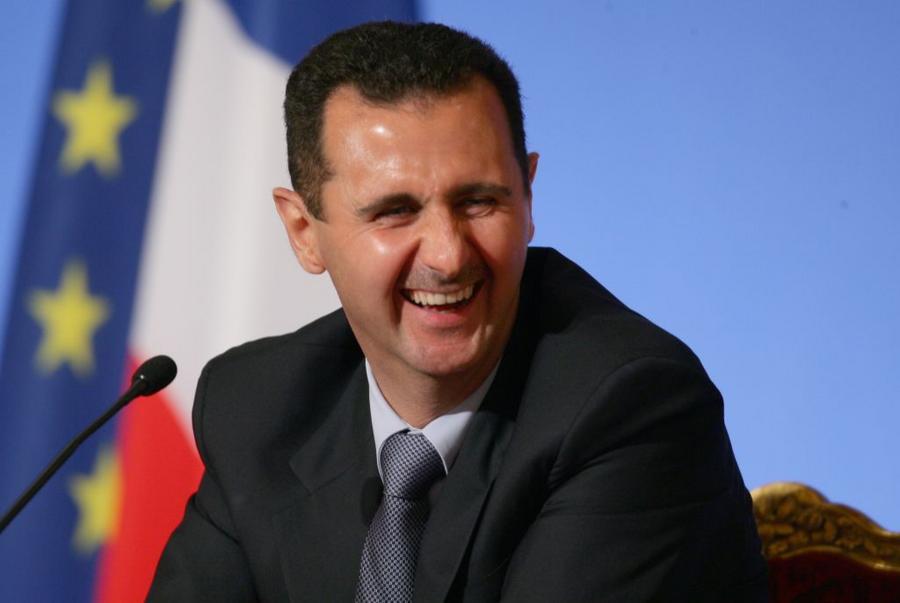Bashar al-Assad's path to power began in the halls of a London eye hospital, where the mild-mannered ophthalmology student spent his days examining retinas and studying corneal transplants. The second son of Syrian strongman Hafez al-Assad, Bashar was never meant to rule – that role had been destined for his charismatic older brother Bassel. But when Bassel died in a car crash in 1994, Bashar was suddenly recalled to Damascus, hastily groomed for leadership, and elevated to the presidency upon his father's death in 2000.
Now, with Assad's own sudden flight from Damascus and his whereabouts unknown, attention has turned to the massive fortune his family accumulated during their decades of autocratic rule.
While millions of Syrians languish in poverty or refugee camps after years of brutal civil war, the Assad family's empire – built through systematic corruption and economic control – remains largely intact, spread across hidden accounts and shell companies throughout the Middle East and Europe.
Through a labyrinthine network of front companies, trusted proxies, and offshore accounts, the Assads have maintained an iron grip over vital sectors of Syria's economy, from telecommunications and real estate to oil and banking. This vast financial web, methodically constructed during Hafez al-Assad's 30-year rule and later expanded under Bashar's presidency, stands as a testament to how thoroughly the family plundered their nation's wealth while presenting themselves as guardians of the Syrian state.

(Photo by Pool BENAINOUS/HOUNSFIELD/Gamma-Rapho via Getty Images)
Massive Hidden Fortune
Bashar al-Assad's personal net worth has been estimated at $1.5 billion. But that's just a fraction of the total picture. Over the years, reports have surfaced that claim during peacetime, al-Assad and his close circle of family and friends came to control a fortune equal to 3/4 of the entire economy of Syria. They have interests in real estate, factories, energy plants, and licenses to sell foreign goods. None of those are easy to liquidate when there is a need for fast cash or a quick getaway, however.
When you total up the wealth of Bashar al-Assad and his extended family, the result is staggering. The al-Assad regime's wealth has been estimated in the neighborhood of $60-122 billion when you add up their real estate holdings, oil, art, and cash.
Al-Assad's assets are buried in a plethora of companies and trusts set up specifically to disguise assets and wealth belonging to the Syrian regime.
The UK has frozen millions of the dictator's assets, but that doesn't even make a dent in al-Assad's accounts. In April 2017, Spanish police seized $740 million worth of assets from one of Bashar's uncles. That same year, British officials froze more than $124 million of the regime's assets. Likewise, Swiss authorities have frozen 50 million Swiss francs that belong to him and his top officials over the past several months. The government of Switzerland has targeted roughly 127 Syrian officials and 40 companies with ties to al-Assad's regime. Brussels has also been on a mission to freeze the assets of 129 people and 49 companies with ties to the Syrian regime – they just have to find them first.
In 2016, Switzerland froze about $3.2 million in funds in a bank in Geneva belonging to al-Assad's cousin, Hafez Makhlouf. Makhlouf was suspected of money laundering. He appealed the seizure of his funds on the grounds that the money was placed in the Swiss bank prior to the sanctions the Swiss put on Syria in May 2016. He won that appeal, and the money was unfrozen.
Rami Makhlouf, Hafez's brother, is the al-Assad family's key fixer. He has amassed an enormous fortune since Bashar al-Assad rose to power in 2000. He is the richest man in Syria, believed to have a net worth of between $5 billion and $10 billion.
As international investigators continue their hunt for Assad's hidden assets, the stark contrast between his family's opulent lifestyle and Syria's devastation remains a bitter symbol of his regime's legacy. The palatial homes in Dubai, the luxury apartments in Moscow and London, the secret accounts in Lebanese banks – all stand as testament to how thoroughly the Assads exploited their nation for personal gain.
While millions of Syrians face an uncertain future, scattered across refugee camps or trying to rebuild amid their country's ruins, the fortune amassed by their former leader remains largely beyond reach, protected by a sophisticated network of financial proxies and friendly foreign governments. The ultimate fate of these billions may never be known, but they represent a final insult to the Syrian people – a people whose resources were systematically plundered by a family that treated their nation like a personal fiefdom for over four decades.
/2011/05/Bashar-Al-Assad.jpg)
/2014/11/GettyImages-103781822-1.jpg)
/2015/09/Hamdi-Ulukaya.jpg)
/2015/10/GettyImages-103448400.jpg)
/2015/07/George-Wassouf.jpg)
/2015/09/CNW-Man-2.png)
/2009/09/Brad-Pitt.jpg)
/2009/11/George-Clooney.jpg)
/2018/03/GettyImages-821622848.jpg)
/2020/02/Angelina-Jolie.png)
/2019/04/rr.jpg)
/2020/06/taylor.png)
:strip_exif()/2015/09/GettyImages-476575299.jpg)
/2020/01/lopez3.jpg)
/2019/11/GettyImages-1094653148.jpg)
/2017/02/GettyImages-528215436.jpg)
/2019/10/denzel-washington-1.jpg)
/2009/09/Cristiano-Ronaldo.jpg)
/2009/09/Jennifer-Aniston.jpg)
/2020/04/Megan-Fox.jpg)
:strip_exif()/2009/09/P-Diddy.jpg)